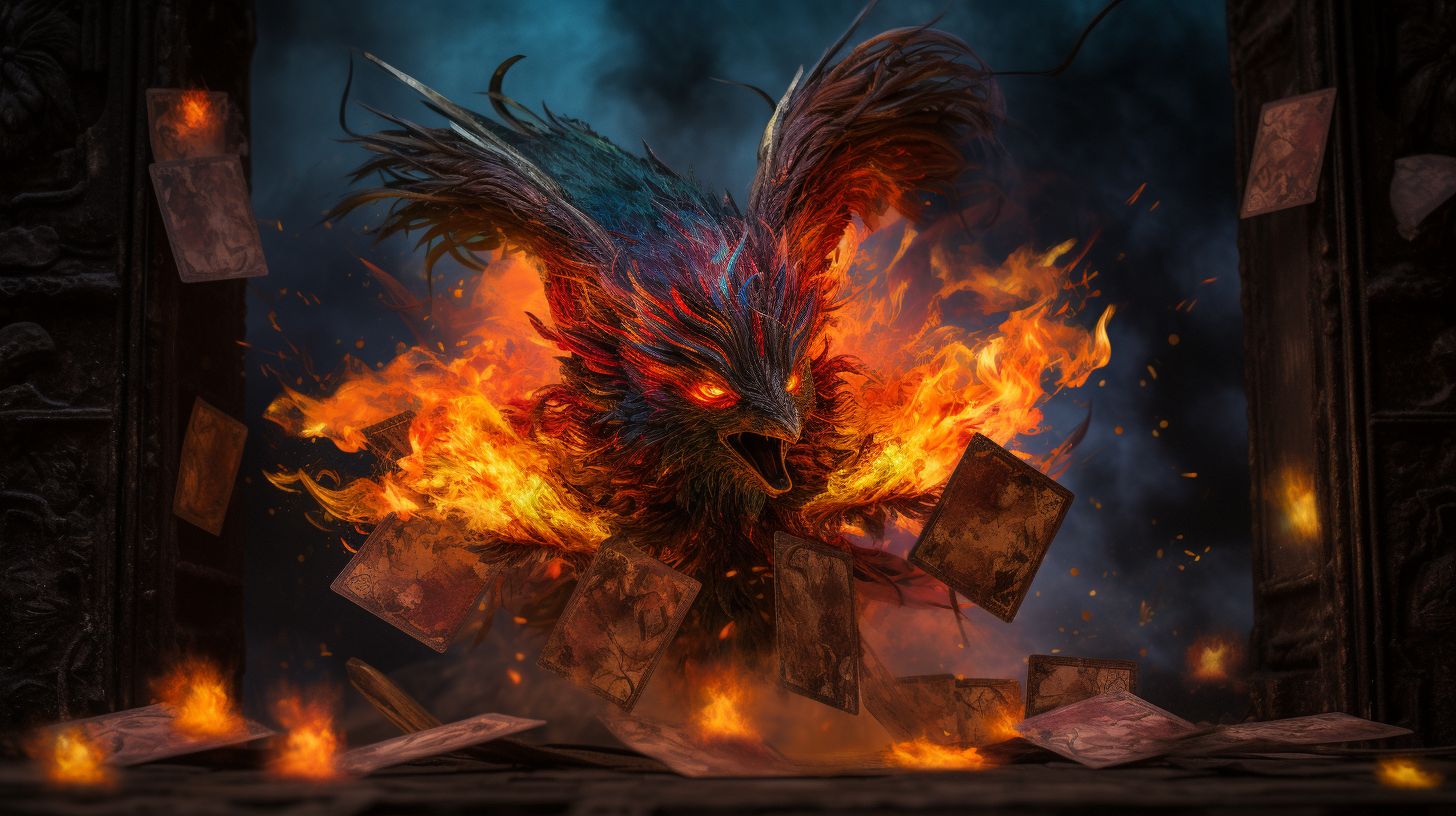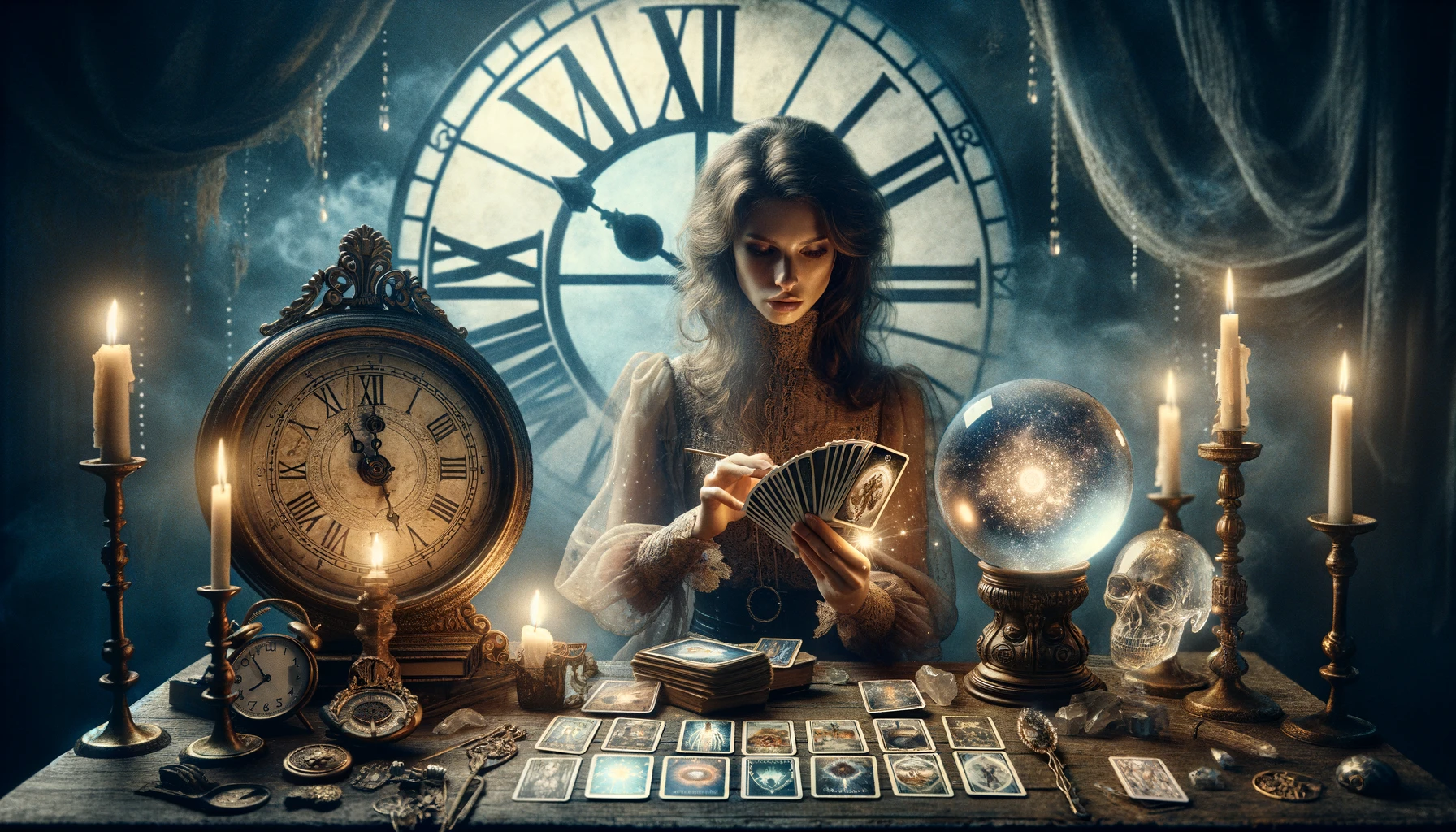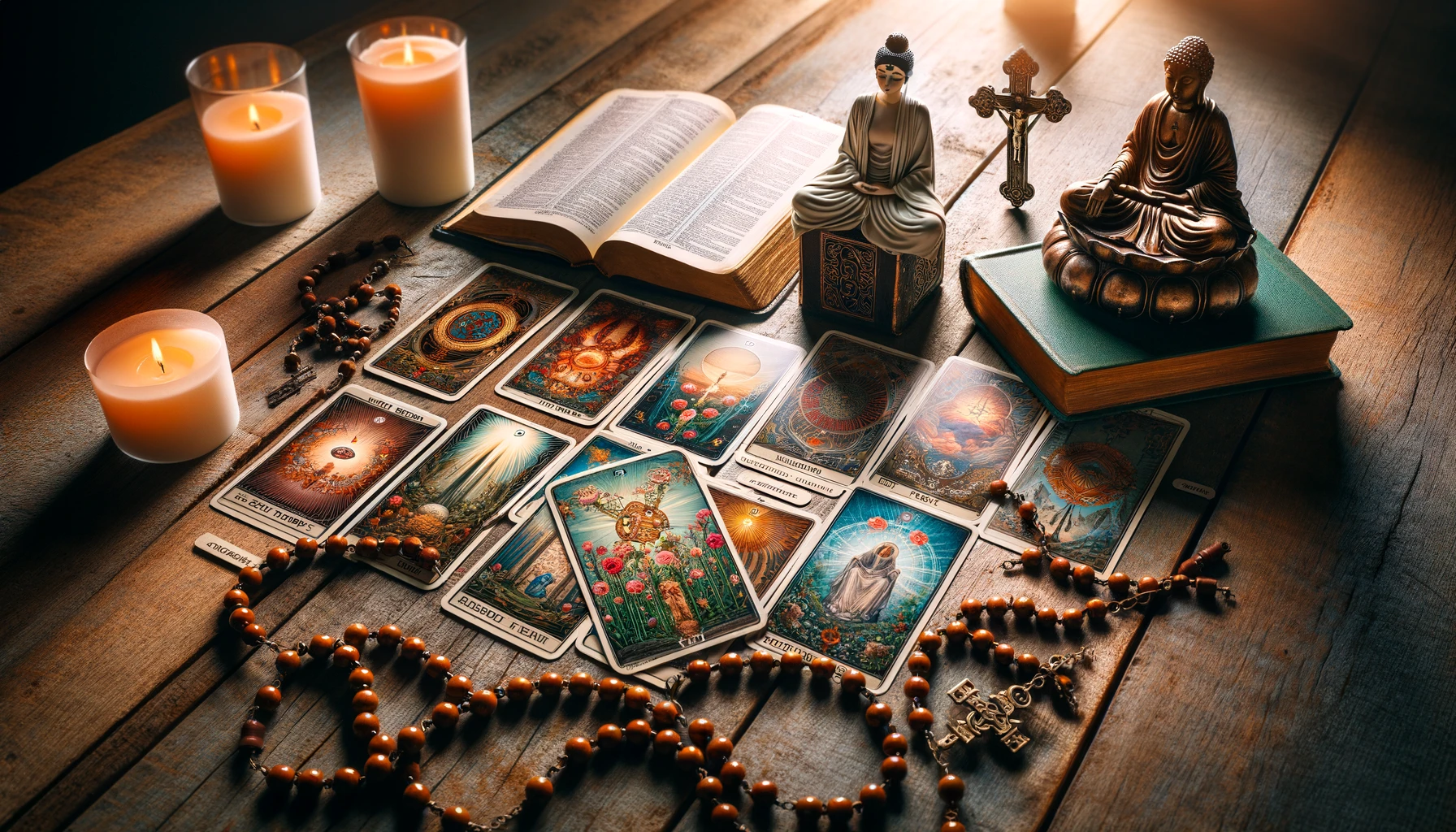
Last Update:
Common Tarot Myths Debunked
Published on

Last Update:
Published on
Are you curious about the mystical realm of tarot, but feeling hesitant because of the common myths that surround it? Well, fear not, my friend, for in this article, we will debunk these misconceptions and enlighten you with the truth about tarot.
You might have heard the saying that you can’t buy your own first tarot deck, but let me tell you, that’s just a load of hogwash. In fact, purchasing your own deck can forge a personal connection and deepen your understanding of the cards.
And don’t believe the nonsense that only those with psychic abilities can read tarot. Anyone can learn this skill through practice and tapping into their own intuition.
So join us as we shatter these common tarot myths and liberate you to explore the captivating world of self-discovery and guidance.
One common myth debunked in tarot is the belief that tarot predicts your future with certainty. Many people have the misconception that tarot cards hold the power to reveal a predetermined future, as if they were a crystal ball. However, this is far from the truth. Tarot isn’t about fortune-telling, but rather about self-awareness and guidance.
Tarot readings offer insights into the present moment, providing a snapshot of the energies and influences surrounding you. The future, however, remains fluid and shaped by our actions and decisions. The cards serve as a roadmap, highlighting potential paths and outcomes, but they don’t dictate the exact course your life will take.
It is important to understand that tarot isn’t reserved for those with psychic abilities. Anyone can learn to read tarot with practice and by opening up to their intuition. The cards are simply a tool that helps us tap into our own inner wisdom and intuition. They provide a visual representation of the energies at play, allowing us to gain deeper insights into ourselves and our situations.

Many people mistakenly believe that tarot is an evil or occult practice. However, this is far from the truth. Tarot cards aren’t inherently malevolent, but rather represent archetypal symbols from the collective unconscious. They’re tools that encourage self-reflection and personal growth, not evil or occult practices.
Let’s debunk some common misconceptions about tarot:
It is important to approach tarot with an open mind and a willingness to explore its potential benefits. By dispelling these myths and misconceptions, we can embrace tarot as a valuable tool for self-discovery and personal transformation. Remember, tarot is about freedom and empowerment, not evil or occult practices.
Are Tarot readers truly equipped with psychic powers? This is one of the common misconceptions about tarot that often creates confusion and skepticism. While some may believe that tarot readers possess psychic or supernatural abilities, the truth is that tarot is an intuitive practice that requires empathy and intuition rather than psychic powers.
Skilled tarot readers are able to interpret the cards based on their expertise and understanding of the symbolism and imagery present in each card.
Tarot readings aren’t about predicting the future with certainty. Instead, they provide a glimpse into the present energies and potential paths that an individual may encounter. The cards act as a tool to guide and empower individuals to make informed decisions and take control of their lives. It’s important to remember that tarot readings aren’t fixed or predetermined; they simply offer insights and possibilities.
Tarot readers don’t rely solely on psychic powers to interpret the cards. Instead, they rely on their knowledge, intuition, and the ability to connect with the energy of the person they’re reading for. Through practice and experience, intuition can be honed and developed, allowing the reader to gain a deeper understanding of the cards and their meanings.

Does tarot always deliver negative news? Absolutely not. While tarot readings encompass a wide range of insights, they aren’t limited to delivering bad news. Here are three reasons why tarot tells more than just negative outcomes:
Tarot can be practiced alongside religious beliefs, debunking the myth that it’s incompatible with religion. Many people believe that practicing tarot goes against their religious teachings or that it’s a form of divination that conflicts with their faith. However, this is a misconception that stems from a lack of understanding about the nature and purpose of tarot.
Tarot is a secular practice that focuses on self-awareness, personal growth, and spiritual exploration. It’s a tool that can be integrated into various religious practices and used to deepen one’s connection with their beliefs. Tarot readers come from different religious backgrounds and often bring their own faith and experiences into their interpretations. The religious beliefs of the reader don’t affect the nature of the tarot cards themselves.
In fact, tarot can enhance one’s religious or spiritual journey by providing guidance, insights, and a broader perspective on life’s challenges and opportunities. It can be used as a tool for self-reflection, prayer, meditation, and connecting with higher powers. Tarot readings can help individuals gain clarity, find meaning, and make informed decisions in alignment with their religious values.
The idea that tarot is incompatible with religion is based on a narrow understanding of both tarot and religion. It’s important to approach tarot with an open mind and to integrate it into one’s religious practice in a way that feels comfortable and authentic. Tarot is a versatile tool that can be adapted to suit individual beliefs and preferences, making it compatible with religion rather than incompatible.

Tarot doesn’t come from a specific religion. It’s a secular practice that can be integrated into various spiritual beliefs. Tarot transcends religious boundaries and focuses on self-awareness and personal growth.
Tarot readers come from diverse religious or spiritual backgrounds, and their interpretations may be influenced by their own experiences. The interpretation of tarot cards can vary based on personal beliefs and cultural backgrounds. Tarot cards can represent personal experiences and beliefs, regardless of cultural or religious affiliations.
The cons of tarot reading are subjective and vary from person to person. Some may feel that relying too heavily on tarot can lead to a loss of personal agency or a dependence on external guidance.
Others may find the interpretations and meanings of the cards confusing or difficult to understand. Additionally, some individuals may have ethical or religious concerns about engaging with tarot.
It’s important to approach tarot with an open mind and consider your own beliefs and comfort levels.
Tarot cards draw from various mythologies and cultural traditions, creating a unique blend of symbolism. The imagery on the cards is influenced by Christian, Jewish, Egyptian, and medieval European symbols, among others.
The Major Arcana cards incorporate elements from ancient mythology, astrology, and alchemy. There’s no single mythology exclusively associated with tarot cards, as their origins can be traced back to different regions and time periods.
This rich fusion of mythologies makes tarot a versatile tool for interpretation and introspection.
The psychology behind tarot cards lies in their ability to tap into your subconscious mind and provide insights and guidance.
By engaging with the imagery and symbols on the cards, you’re opening up a channel of communication with your own intuition and inner wisdom.
Tarot readings can help you gain clarity, understand your emotions and motivations, and make informed choices.
It’s a powerful tool for self-reflection and personal growth, allowing you to explore your thoughts and feelings in a meaningful way.